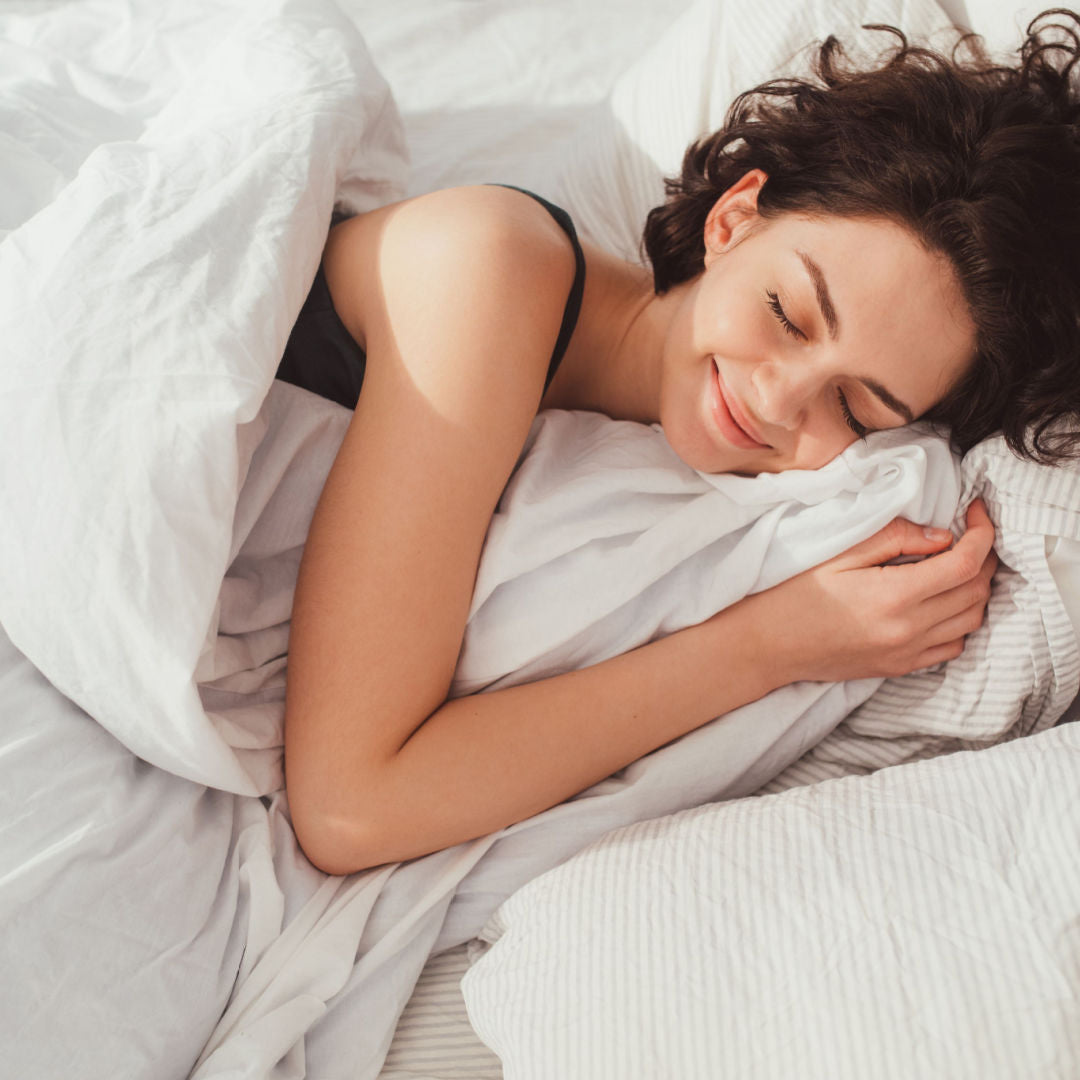
How Hormones Affect Your Sleep Patterns
Share
Sleep is critical for mental and physical health, yet many people neglect it. This article discusses the impact of lack of sleep on hormone regulation and the role of hormones in sleep regulation.
Sleep and Health
Almost all animals studied to date show some rest and activity patterns resembling sleep. Poor sleep negatively impacts longevity for many animals, including humans. Conversely, good quality sleep is essential for healthy physiology and bodily function. With that, we can conclude that sleep is fundamental to our lives(1). Scientists still don’t know the exact function of sleep. Nevertheless, it plays a role in many vital functions, including development, energy conservation, brain waste clearance, learning and memory, and immune responses(2).
Sleep Patterns in Humans
Researchers characterize sleep by changes in brain wave activity, as measured by the electroencephalogram (EEG). They also consider the level of muscle activity in the electromyogram (EMG)(2)
Table 1. Human Sleep Stages(3)
|
Stage |
Type |
Subtypes |
What happens? |
Duration |
|
Stage 1 |
NREM |
N1 |
Transition: body and brain activity starts to slow down. Periods of brief movements are still present. It’s easy to wake the person. |
1-5 minutes |
|
Stage 2 |
NREM |
N2 |
The body temperature drops, the muscles relax, breathing and heart rate decrease. The brain activity slows down, but there are short bursts of activity. |
10 - 60 minutes |
|
Stage 3 |
NREM |
N3 |
Deep sleep: it becomes more difficult to wake the person under stimuli. The muscles relax further, and the heart and breathing rate decrease. This stage is also called slow-wave sleep (SWS). |
20 – 40 minutes
|
|
Stage 4 |
REM |
N/A |
Brain activity is similar to when the person is awake. At the same time, the muscles are completely relaxed, except those that control essential bodily functions. The eyes move quickly, and most of the dreams occur. |
10 – 60 minutes |
The individual will cycle through all stages several times during a typical night of sleep. REM episodes become deeper and increasingly longer toward the morning(3).

How Sleep Affects Hormones
Hormones are chemical messengers that regulate several bodily functions such as growth and development, metabolism, sexual function, reproduction, and mood(4).
Sleep and hormones are closely related. Sleep affects the body’s hormonal regulation, and at the same time, hormones can influence sleep and vigilance states.
Multiple studies suggest that sleep-deprived people are more likely to be obese. This is because a short sleep duration (less than 7 hours per night) may affect the function of appetite and energy expenditure, regulating hormones such as leptin, ghrelin, adiponectin, resistin, and orexin(5).
Sleep loss is linked to reduced levels of leptin, a hormone that suppresses appetite, and increased levels of ghrelin, which stimulates appetite. As a result, sleep-deprived individuals have higher body mass index (BMI) than those who sleep at least 7-8 hours per night(5).
Additionally, sleeping less than necessary directly affects the function of the hypothalamic-pituitary-adrenal axis, which regulates the synthesis of cortisol, the stress hormone(5). This helps to explain the increased incidence of mood disorders in people with sleep problems(6).
Also, elevations of evening cortisol levels in chronic sleep loss may cause insulin resistance, a risk factor for type 2 diabetes(5).
How Hormones Affect Sleep
Hormonal changes can cause sleep disruption. A classic example is cortisol. This hormone has its peak secretion in the morning and reduced levels close to bedtime. High cortisol levels at an unnatural time can disrupt sleep at night, causing insomnia(7).
Sex hormones such as estrogen, progesterone, and testosterone can also influence sleep. During the menstrual cycle, fluctuating levels of estrogen and progesterone can alter sleep stages at night and cause sleep disruption. Hormonal fluctuations during pregnancy can also cause sleep problems(8). Additionally, lower levels of estrogen and progesterone during menopause can contribute to poorer sleep(9).
Lastly, research suggests that reduced testosterone levels are associated with poorer sleep quality and a greater chance of having sleep apnea, a sleep disorder more common in men(10).
In summary
Hormones and sleep are closely related. That's why it's important to maintain a balance between sufficient, good-quality sleep and efficient hormone regulation.
References
1. Keene AC, Duboue ER. The origins and evolution of sleep. Journal of Experimental Biology [Internet]. 2018 Jun 12;221(11):jeb159533. Available from: https://doi.org/10.1242/jeb.159533
2. Zielinski MR, McKenna JT, McCarley RW. Functions and Mechanisms of Sleep. AIMS Neurosci [Internet]. 2016/04/21. 2016;3(1):67–104. Available from: https://pubmed.ncbi.nlm.nih.gov/28413828
3. NIH. Brain Basics: Understanding Sleep. https://www.ninds.nih.gov/health-information/patient-caregiver-education/brain-basics-understanding-sleep#2. 2022.
4. Medline Plus. Hormones. https://medlineplus.gov/hormones.html. 2016.
5. Lin J, Jiang Y, Wang G, Meng M, Zhu Q, Mei H, et al. Associations of short sleep duration with appetite‐regulating hormones and adipokines: A systematic review and meta‐analysis. Obesity Reviews. 2020;21(11):e13051.
6. Nicholson WC, Pfeiffer K. Sleep Disorders and Mood, Anxiety, and Post-Traumatic Stress Disorders: Overview of Clinical Treatments in the Context of Sleep Disturbances. Nursing Clinics. 2021;56(2):229–47.
7. Hirotsu C, Tufik S, Andersen ML. Interactions between sleep, stress, and metabolism: From physiological to pathological conditions. Sleep Science. 2015;8(3):143–52.
8. Sleep foundation. Insomnia and women. https://www.sleepfoundation.org/insomnia/insomnia-women. 2022.
9. Sleep Foundation. Menopause and Sleep. https://www.sleepfoundation.org/women-sleep/menopause-and-sleep#:~:text=Sleep%20issues%20are%20common%2C%20with,mood%20and%20sleep%20disorders4. 2022.
10. Barrett-Connor E, Dam TT, Stone K, Harrison SL, Redline S, Orwoll E, et al. The association of testosterone levels with overall sleep quality, sleep architecture, and sleep-disordered breathing. J Clin Endocrinol Metab. 2008;93(7):2602–9.